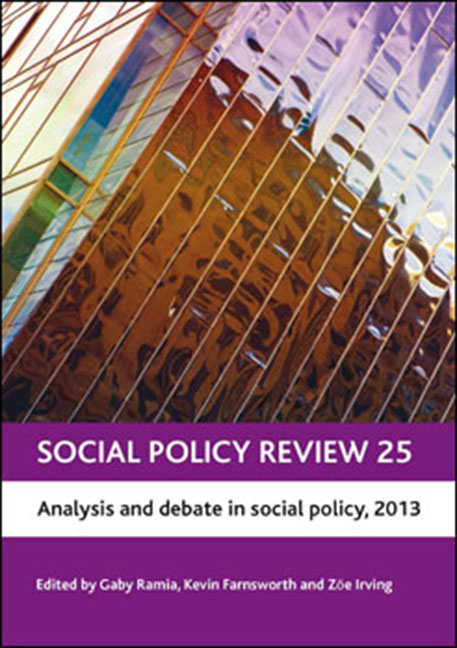Book contents
Part One - Contemporary debates and developments in the UK
Published online by Cambridge University Press: 03 February 2022
Summary
Part One deals with a wide span of welfare issues in the UK, with a focus on current and ongoing policy developments. These include: universal credit; fuel poverty; climate change policy; health policy, in particular, developments in relation to the National Health Service (NHS); the financing of later life and especially pensions; adult social care; housing equity; and ‘the politics of old age’.
These issues are covered in four chapters. The authors explore policy interconnections and the politics behind policymaking as the British government responds in its own ways to widespread need, growing inequality and other social problems in the context of a financial crisis. Naturally, the effectiveness of the responses is placed under the microscope, for the most part, with major questions regarding the Conservative ideology that underpins the Cameron government's policy agenda.
In Chapter One, author Paul Spicker interrogates the government's introduction of Universal Credit, a controversial scheme designed to unify various means-tested benefits for people of working age. The scheme brings together six existing benefits: income-related Jobseeker's Allowance and Employment and Support Allowance, Working Tax Credit and Child Tax Credit, Housing Benefit, and Income Support. Spicker argues that analysts of Universal Credit must drill down to the detail of the scheme and the benefits that it covers. He sees defects in ‘the concept and design’ of the Universal Credit agenda, as there were in previous grand schemes in social policy history. He also sees potential for the benefit system to break down if it cannot prove to be practically viable. Governments, Spicker contends, cannot easily meet the multiple objectives that must typically be met in ‘simple’ and ‘unified’ benefit programmes.
Carolyn Snell and Harriet Thomson, authors of Chapter Two, discuss the Coalition government's attempt to reconcile two key dimensions of its energy policy: climate change and fuel poverty. Climate change relates to the ‘use of non-renewable forms of energy’, and fuel poverty is ‘often associated with the underuse or excessive cost of household energy’ (p 23). As part of their analysis, Snell and Thomson discuss the Energy Act 2011 and its flagship policy, ‘The Green Deal’.
- Type
- Chapter
- Information
- Social Policy Review 25Analysis and Debate in Social Policy, 2013, pp. 1 - 2Publisher: Bristol University PressPrint publication year: 2013



